The Uninsured Rate Is Going Up Again
The national uninsured rate has started climbing back up amid higher costs for health insurance and uncertainty about the future of the Affordable Care Act, according to Gallup-Sharecare Well-Being Index survey findings released Friday.
In the three-month period that ended Sept. 30, 12.3 percent of American adults had no health coverage, a 0.6 percentage point increase from the prior quarter and a 1.4 percentage point rise since the end of last year, the Gallup-Sharecare Well-Being Index shows. That represents 3.5 million fewer Americans with health coverage between Dec. 31, 2016, and Sept. 30, 2017, according to Gallup, and continues a trend that started earlier this year.
The Affordable Care Act brought about a historic decline in the uninsured rate through its expansion of Medicaid coverage to low-income adults and its introduction of subsidized private health insurance for low- and middle-income families beginning in January 2014. From 2014 through 2016, the share of Americans without health coverage fell significantly, reaching 10.9 percent at the end of last year.
Since then, the percentage has crept higher, but still remains far lower than the 18 percent recorded at the end of 2013, just before the Affordable Care Act’s coverage expansion began.

The Gallup report doesn’t include data proving the causes of the uptick in the number of uninsured, but the likeliest explanation includes a mix of factors that include shortcomings of the Affordable Care Act’s health insurance marketplace itself, and actions taken by President Donald Trump and the Republican-led Congress.
Although premiums for people who get health benefits from their employers ― the most common source of health coverage in the United States ― have held relatively steady in recent years, the same can’t be said for the price of health insurance from an exchange or bought directly from an insurer. The share of Americans in this segment of the insurance market without health insurance increased from 20 percent at the end of 2016 to 21.3 percent as of Sept. 30, Gallup reports.
Premium increases on the Affordable Care Act’s health insurance exchanges rose sharply in many parts of the country from 2016 to 2017, putting coverage out of reach for households that qualified for little or no financial assistance. Those who are eligible for tax credits to reduce their monthly insurance bills generally are shielded from rate hikes because their subsidies increase to compensate, but those who must pay full price bear the brunt of the rate hikes. Even so, the uninsured rate rose slightly more last quarter for low-income households than for higher earners.
In addition to those underlying issues in the market regulated by the Affordable Care Act, Trump and the GOP Congress have created uncertainty about the state of the exchanges and the future of the health care system that likely depressed enrollment.
The House passed legislation this spring to repeal the Affordable Care Act, and the Senate debated but ultimately failed to pass a similar bill. Those bills would’ve increased the number of uninsured Americans by more than 20 million, according to Congressional Budget Office analyses. These congressional actions, plus the Trump administration indicating it might not fully enforce the law’s individual mandate that most U.S. residents obtain health coverage or face tax penalties, could have contributed to the decline in the number of people covered.
The uninsured rate very probably will continue to increase in future months if things remain on their present course.
Trump’s threats ― on which he followed through this month ― to cut off repayments to health insurance companies serving low-income people caused insurers to institute very large premium hikes in most states for next year. The Trump administration also has clearly signaled it will carry out a much less robust effort to enroll people in health coverage during the open enrollment period that begins Nov. 1 and ends Dec. 15 in most states, which risks lower sign-up numbers for 2018.
A bipartisan group of senators led by Health, Education, Labor and Pensions Committee Chairman Lamar Alexander (R-Tenn.) and ranking member Patty Murray (D-Wash.) introduced legislation Thursday to stabilizing the health insurance exchanges. But even if Congress passes this bill and Trump signs it before the end of the year, it would have little effect on exchange plan premiums next year, which already are all but locked in.
Hear Jeffrey Young talk about the latest in health care politics in minute 28 of the HuffPost Politics podcast:
Also on HuffPost
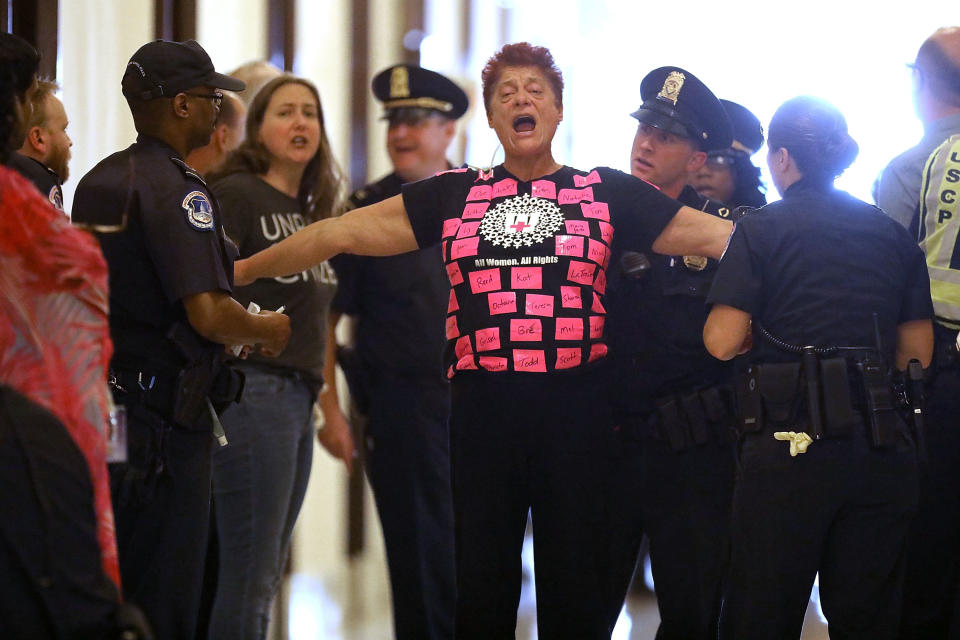
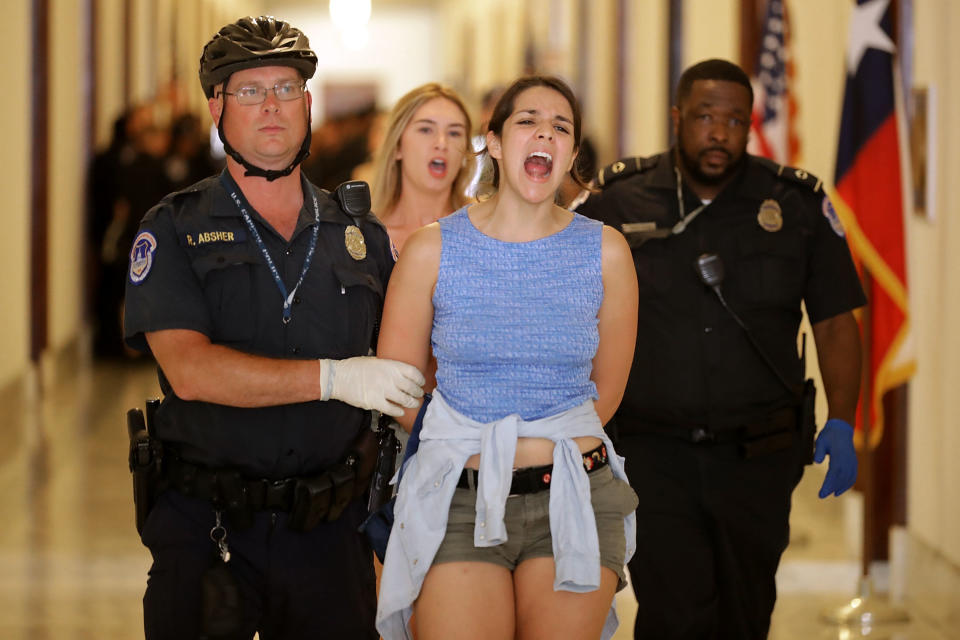
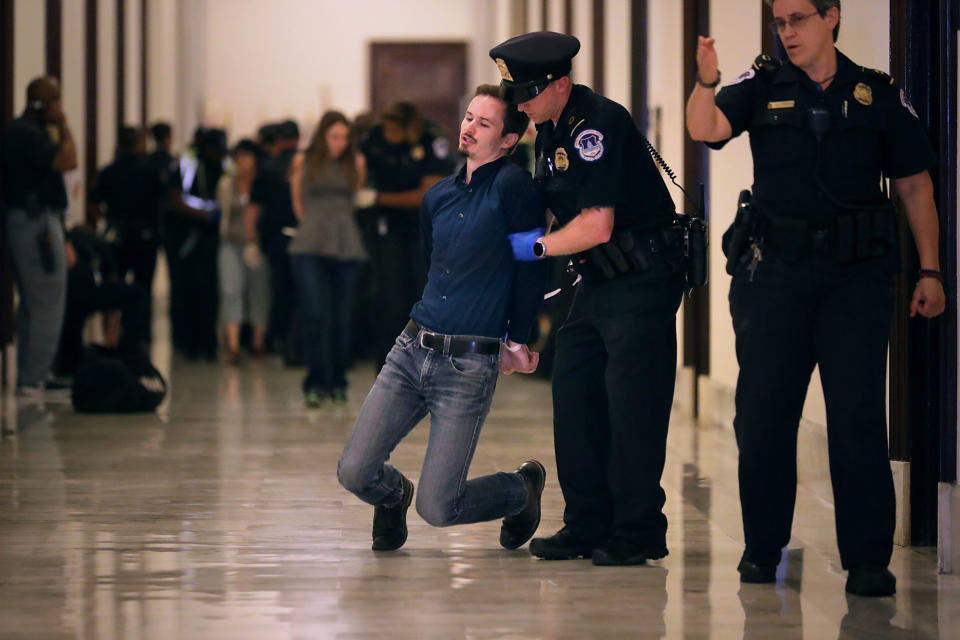
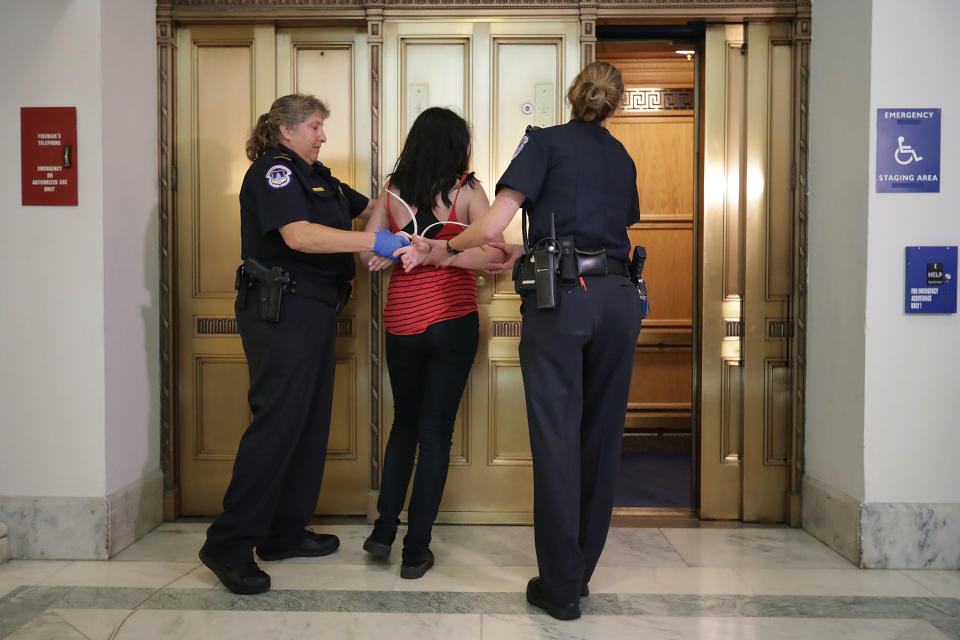
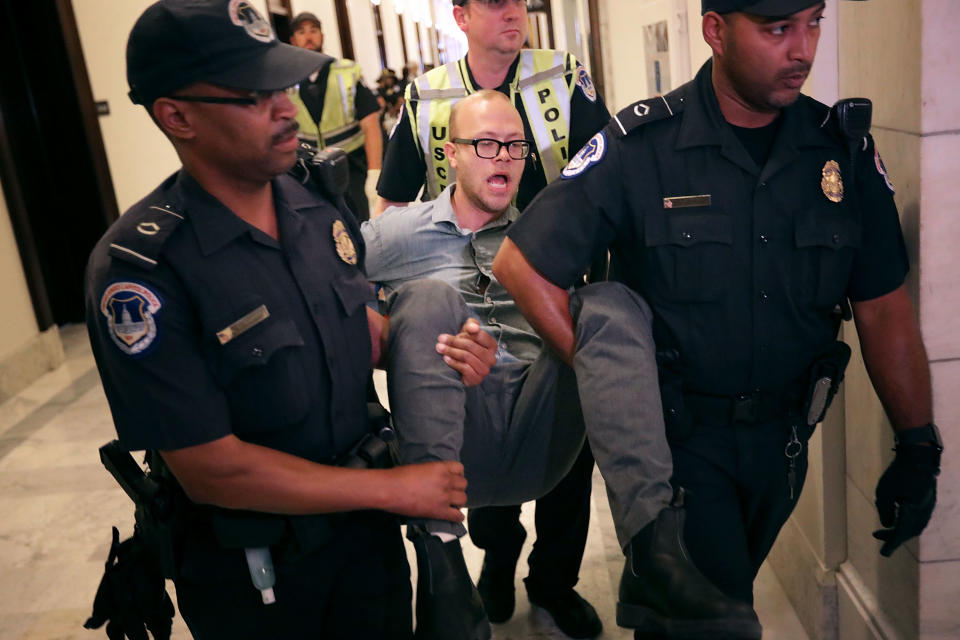
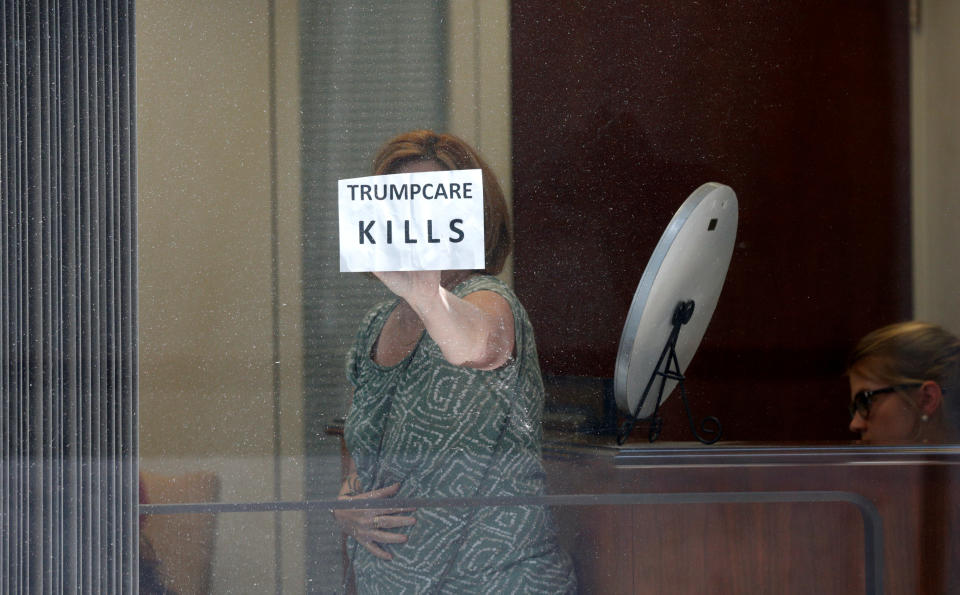
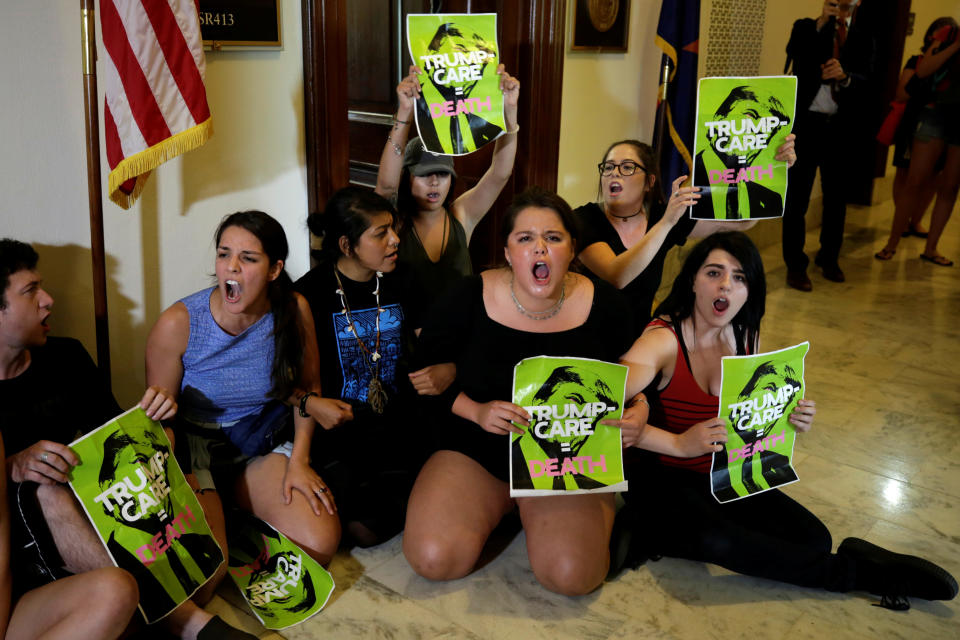
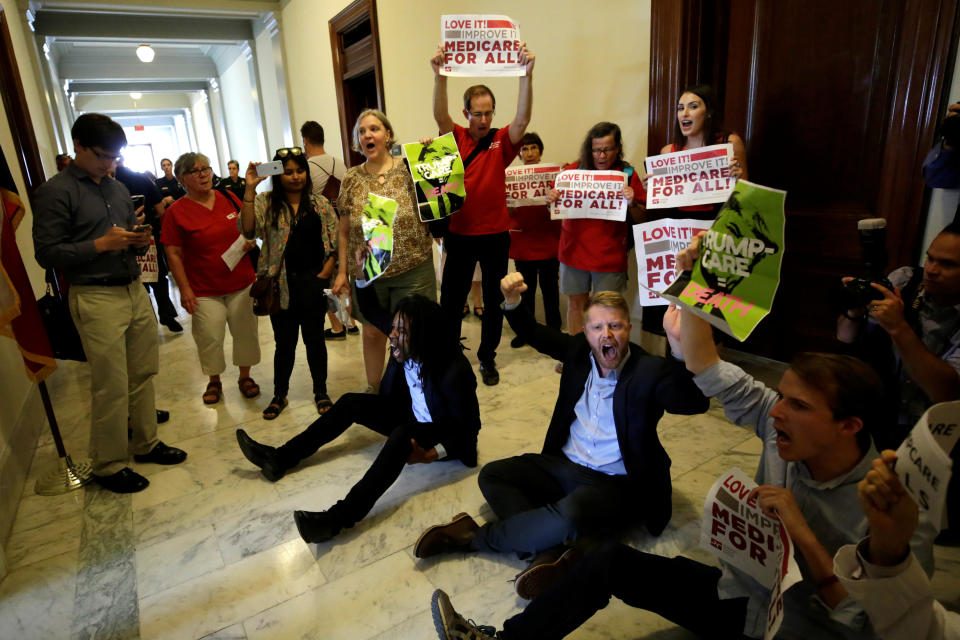
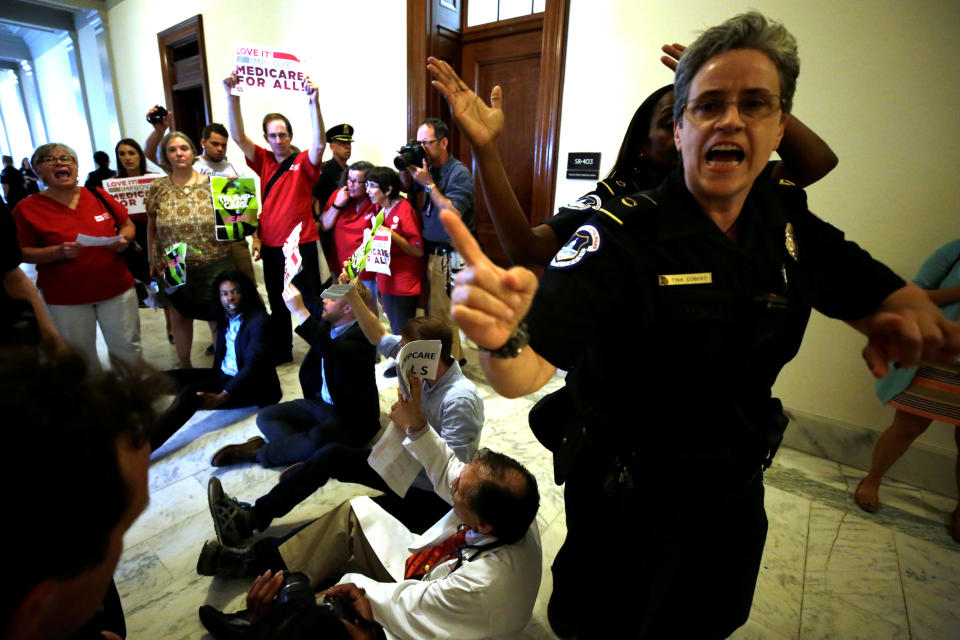

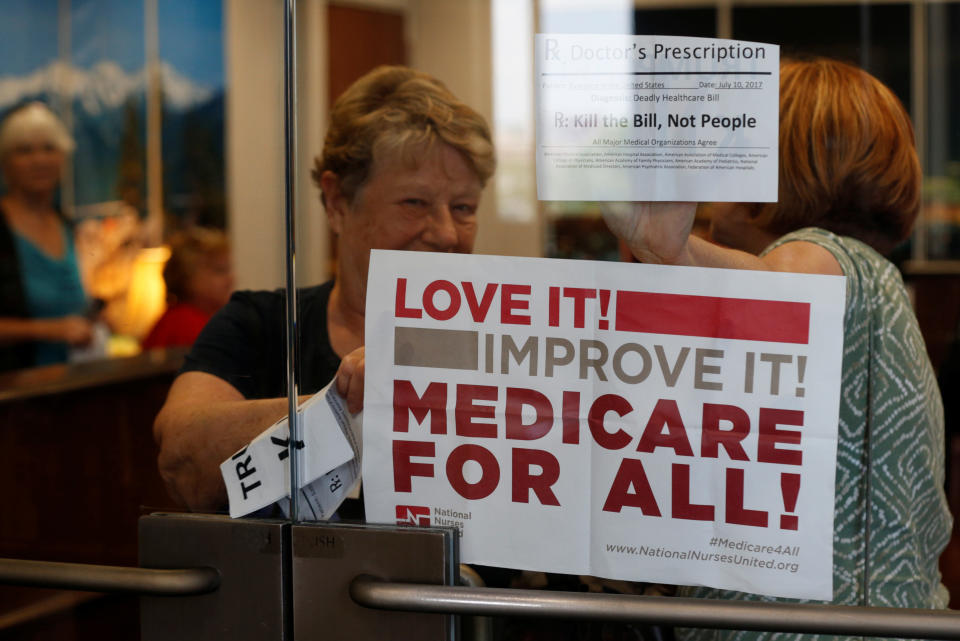
Love HuffPost? Become a founding member of HuffPost Plus today.
This article originally appeared on HuffPost.

